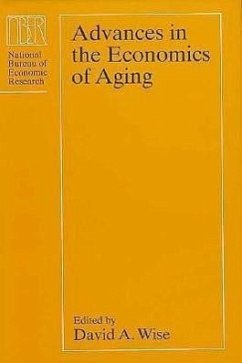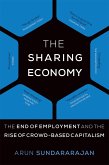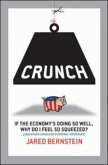The National Bureau of Economic Research has for over a decade sponsored the Economics of Aging Program, under the direction of David A. Wise. The Program addresses issues that are of particular importance to the well-being of individuals as they age and to a society at large that is composed increasingly of older persons. Advances in the Economics of Aging is the fifth in a series of volumes that report the results of the program's research. Individual chapters address the effect of labor market rigidities on the labor force behavior of older workers; the factors that affect the high incidence of retirement at age 65; the relationship between military pension, compensation, and retirement of U.S. Air Force pilots; the effect on retirement of the availability of one type of health insurance, continuation of coverage benefits; and the influence of the prospective payment system (PPS) on rising Medicare costs. Other chapters consider new methodological developments in the modeling of the effects of health and wealth on living arrangement decisions; the degree of substitution between 401(k) plans and other employer-provided retirement saving arrangements; and the extent to which housing wealth is an important determinant of the consumption and saving of the elderly. In addition, two final chapters use innovative simulations that describe the implications of stylized economic models of behavior among the elderly. They examine the potentially complex relationship between health and housing decisions and the role of mobility costs and other economic factors in this relationship; and the degree to which anticipated bequests may reduce the saving of potential recipients. This timely volume willbe of interest to anyone concerned with the economics of aging.








